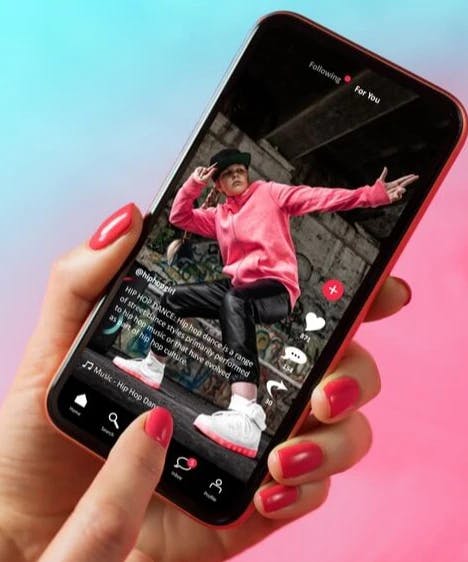What’s With The Trend Of Faking Autism? And Is It Disrespectful To Those Who Actually Struggle With It?
Though it may now be canceled on social media, it’s weirdly still a bit of a trend to act autistic, or at least slightly. Nowadays, some people seem to think that pretending to be autistic makes them seem cool. Why is this a thing?

The Worst Trend
There was the TikTok trend a while ago, the #AutismChallenge, which basically involved people making videos of themselves pretending to be autistic and making fun of certain autistic characteristic behaviors and facial expressions. Eventually, these videos were mostly removed from the platform (or reposted without the hashtag) after the ensuing complaints of mockery and harassment were made.
Obviously, this trend was despicable and offensive, especially to those who actually have autism; it mocks and disrespects those who struggle with the disability. But the trend didn’t stop. People still post videos pretending to be autistic to seem smart or funny, or they adopt fake mannerisms in social settings. They might do this to seem comical, unique, smart, or cool. But why? Because autistic individuals often have highly intelligent tech or book smarts which make them assets to their field of interest.
Understanding the Spectrum
There is a wide range of Autism Spectrum Disorder (ASD) symptoms. It’s a whole spectrum of different types of autism with various levels of severity. Some people with ASD may be very high-functioning and are able to work normally and live independently, while others are affected more severely. Some autistic people may also have ADHD, around 50-70% of the autistic population to be exact. This combination presents additional struggles for those experiencing it personally, as well as for those close to them (caretakers, family, coworkers, etc.).
Those diagnosed with autism are usually hyper-focused on a certain talent they excel in (often music, math, or computer science), and on the flip side, they tend to lack social skills and body language awareness. They also often struggle with social anxiety and have difficulty making connections with new people, including romantic partners. People could pretend ASD, but they will never fully be aware of all the difficulties that autistic individuals experience.
Why the Autism Epidemic?
People have been growing in autism awareness in the last decade especially, and now there are answers for conditions that used to be labeled “retarded.” Approximately 1 in 44 people have been diagnosed with autism, and the prevalence has increased 178% since 2000. Some think that autism has been on the rise since the increase in vaccines/immunizations in childhood because of their effect on young, developing brains. However, the government shuts down any speculation regarding the very possible neurological effects of vaccines, saying the cause is unknown, but that ASD is a combination of genetic and environmental factors.
Approximately 1 in 44 people have been diagnosed with autism, and the prevalence has increased 178% since 2000.
Fake or Real?
Just because someone shows autistic-like characteristics doesn’t mean they’re faking it. On the flip side, there are a lot of people in tech, for instance, who may seem to be on the spectrum, but aren't actually affected. Granted, a large portion of our present population has been diagnosed to be somewhere on the spectrum, and people with certain brains tend to work in the same way and be attracted to the same activities (not surprising). Those individuals on the autism spectrum actually work really well in high-tech jobs because math is easier than reading and social skills. With tech jobs they can hone in their focus on a certain system of process, utilizing their tendency to preoccupy themselves with a certain interest and occupy a one-track focus.
Autism has multiple tells and ways of moving and speaking. It’s almost impossible for someone to fully fake ASD unless they’re an extremely good actor and have fully studied all the mannerisms. For example, they might begin to show exaggerated impersonation or awkward movements associated with autism, but then act normally when discussing something interesting. Even then, what would they gain by it? Thankfully, the disturbing trend of people posting music videos of themselves acting autistic to gain comic popularity is a thing of the past year, but it’s sad and concerning that a not-so-distant trend made faking mental illness (autism and others) a competition for popularity. Young people who struggle with identity may be desperate for attention or validation, while others simply think it’s cool and trendy. Or some in tech may want to “fit in and look smart” just because lots of smart tech people may be somewhere on the spectrum.
It’s sad and concerning that a not-so-distant trend made faking mental illnesses a competition for popularity.
What started online hasn’t completely died out but rather can carry over into certain social situations. You should definitely not judge a person if they just seem to be autistic because they may legitimately be so; however, if you can’t help but suspect that someone is feigning autistic mannerisms (whether in person or online), then the best thing to do is not give that behavior attention. Simply treat them normally and respectfully, if you have to interact at all.
Closing Thoughts
Some people think that more videos online have brought more understanding and awareness to autism, which can be a good thing. But awareness does not need to include mimicking and acting for amusement and increased likes on social media. Autism is a difficult disability for those who struggle with it, and the topic should be treated respectfully. Faking autism cannot qualify someone to “identify” as autistic; rather, there may be other mental health concerns present. Those people need to ask themselves why they feel the need to pretend to have a disability, as if that is the only thing to make them feel unique and noticeable, instead of feeling confident and happy in their own skin.
Don’t miss anything! Sign up for our weekly newsletter and get curated content weekly!